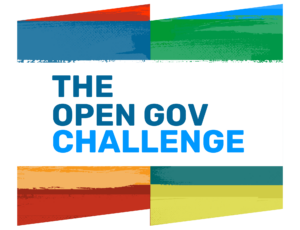Inclusive Technology: Enhance Community Access And Data Transparency In The Extractive Sector
Indonesia’s engagement in implementing the Open Government Partnership (OGP) and the Extractive Industries Transparency Initiative (EITI) has been a significant milestone in promoting transparency, accountability, and participation in the governance of natural resources. Established in 2011, OGP is an international platform where governments and civil society collaborate through co-creation to foster transparent, participatory, inclusive, and accountable governance. Indonesia is one of the eight founding countries of OGP, alongside the United States, United Kingdom, Norway, Brazil, Mexico, South Africa, and the Philippines. To date, OGP membership encompasses 77 countries and over 150 local jurisdictions. Indonesia has demonstrated its commitment through the implementation of seven National Action Plans for Open Government Indonesia (RAN OGI).
Meanwhile, Indonesia’s membership in EITI was marked by the issuance of Presidential Regulation (Perpres) No. 26/2010 on Transparency of State and Regional Revenues from the Extractive Industry, later amended by Presidential Regulation No. 82/2020 on the Committee for Handling Coronavirus Disease 2019 (COVID-19) and National Economic Recovery. In its implementation, Indonesia has published at least 10 EITI Indonesia reports containing data and information covering the entire extractive industry supply chain, from production to the utilization of revenues derived from extractive activities.
Indonesia recently launched the Extractive Industry Data Portal, which provides strategic data and information on oil, gas, and minerals from upstream activities, including regulations, licensing, exploration, production, sales, state revenues, regional revenue-sharing funds, and data on the extractive industry’s contributions to the economy and environment. This portal is expected to serve as a tool for the public to enhance public discourse and oversight of the extractive industry, as well as a reference for the government in formulating policies (data-driven policy), particularly in planning a just energy transition. The portal’s establishment follows Indonesia’s response to the EITI Board’s decision last year, approving Indonesia to begin partial mainstreaming of data disclosure.
However, a 2024 PWYP Indonesia report highlights that merely presenting data through a portal is insufficient. Ensuring that communities, especially those around mining areas, can access this data and information is critical. This includes providing detailed, timely, and relevant data on the impacts of the energy transition on their lives. Other findings emphasize the importance of presenting information in formats accessible to communities and the need to involve community representatives in dialogues and decision-making processes related to the energy transition. This involves promoting sustained community engagement throughout the mining and energy project cycles and ensuring community perspectives influence local, national, and global policies.
This aligns with the Open Budget Survey 2023 by the International Budget Partnership, which shows Indonesia’s budget transparency score at only 68 out of 100, reflecting limited public access. The latest EITI validation in November 2024 gave Indonesia a score of 67 points, categorized as “fairly low,” in implementing extractive sector transparency standards. More concerning, the Satu Data Indonesia 2024 report reveals that only 40 percent of ministries and institutions provide open budget data. Vulnerable groups—indigenous communities, women, and people with disabilities—are rarely involved in oversight, with only 15 percent of budget management processes including them (UNDP Indonesia, 2023).
Inclusive technology serves as a bridge to address these disparities. The World Bank (2016) defines digital inclusion through four pillars: internet access, digital skills, affordability, and relevant content. For example, the Satu Data Indonesia portal could present mining revenue data in local languages or offline formats for rural residents. The Lapor! application enables farmers in Kalimantan to report misuse of reforestation funds from their mobile phones. PWYP Indonesia has demonstrated this potential in North Morowali, Sulawesi, through community engagement in local EITI implementation, ensuring that nickel mining budget data is accessed and utilized by the community.
This webinar, organized as part of Open Government Week 2025, aims to strengthen cross-stakeholder discussions on how inclusive technology can enhance community access and data transparency in the extractive sector.

For one week in May, come together to share ideas, discuss solutions, and commit to new levels of citizen participation in government.
